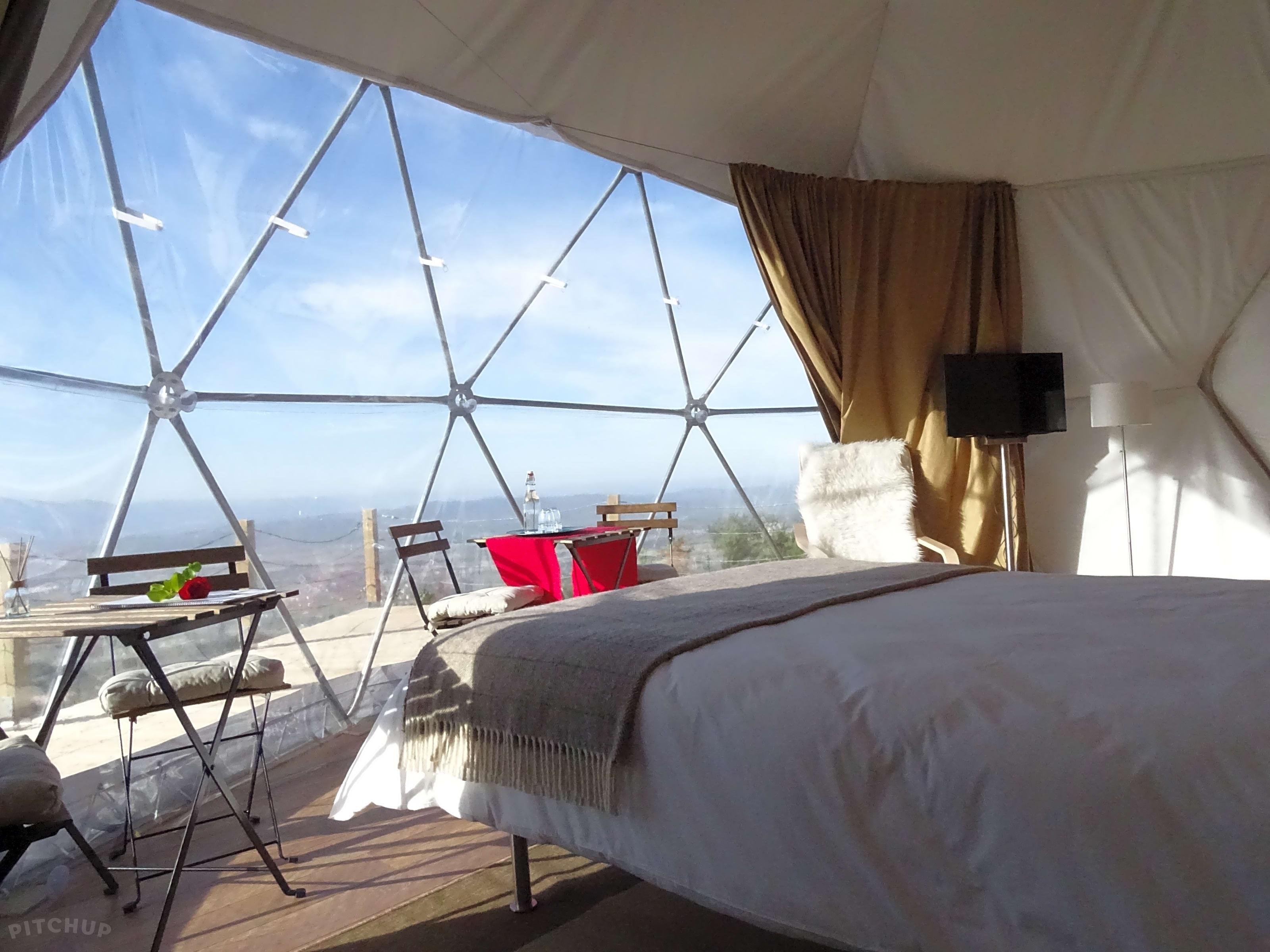The Cyprus Department of Environment approved the construction of a new glamping site in Peristeron, Paphos district, 125 meters from the Sarama Valley protected natural area, part of the Natura 2000 network. This decision followed a special environmental assessment completed on August 1. Experts concluded that the project would not cause irreversible environmental damage.
Project Scope and Infrastructure
The future glamping site will occupy 22,743 square meters of agricultural land. Approximately 3,034 m² will be allocated for public spaces, green areas, and infrastructure. The project includes 20 dome-shaped houses, which have a total area of 419.5 m², and are designed for comfortable accommodations.
Construction of the new glamping site is estimated to cost €1 million, and all work is scheduled to be completed within 12 months. The complex will operate year-round and offer accommodations for an average of 54 guests, with capacity increasing to 72 during the high season from May to September. For guests' convenience, the site will feature an amphitheater, a playground, dining areas, a biological wastewater treatment plant, and 35 parking spaces.
Environmental impact
The nearest glamping site is 125 meters from a nature reserve inhabited by rare birds and plants. An expert assessment confirmed that the project area does not intersect with bird migration routes, meaning their movement will not be disrupted.
During the survey, experts recorded 32 species of flora, none of which are listed in the Red Book of Cyprus. The site was previously used for wheat cultivation, and four almond trees and two olive trees were preserved. Therefore, the land is not considered a significant nesting or feeding site for birds. Nevertheless, experts pointed out possible risks, including habitat reduction, noise impact, and light pollution.

Conditions for project approval
To minimize the environmental footprint, the Department of Environmental Protection has put forward a number of mandatory requirements. These include using the existing power grid instead of laying new lines, limiting visitor numbers, planting 250 new trees, and taking special measures to reduce noise and light pollution. Additionally, construction work will be prohibited between March and July when wildlife is most active in the region.
Support from environmentalists
BirdLife Cyprus participated in the discussion of the project and initially expressed concerns. However, after adjustments were made—moving the domes further away from the protected area, abandoning the idea of bonfires, and revising the design—the environmental organization withdrew its objections.
According to Tassos Shiallis, the BirdLife campaign coordinator, the project can be considered safe for nature provided that all requirements are met: no light pollution, minimal noise levels, a ban on events with loud music, and security controls.
The new glamping site in Peristeron will serve as an example of how tourist infrastructure can be developed near protected natural areas without disturbing the ecological balance. For Cyprus, this is a step towards sustainable tourism that combines comfortable recreation with respect for the island's unique nature.
